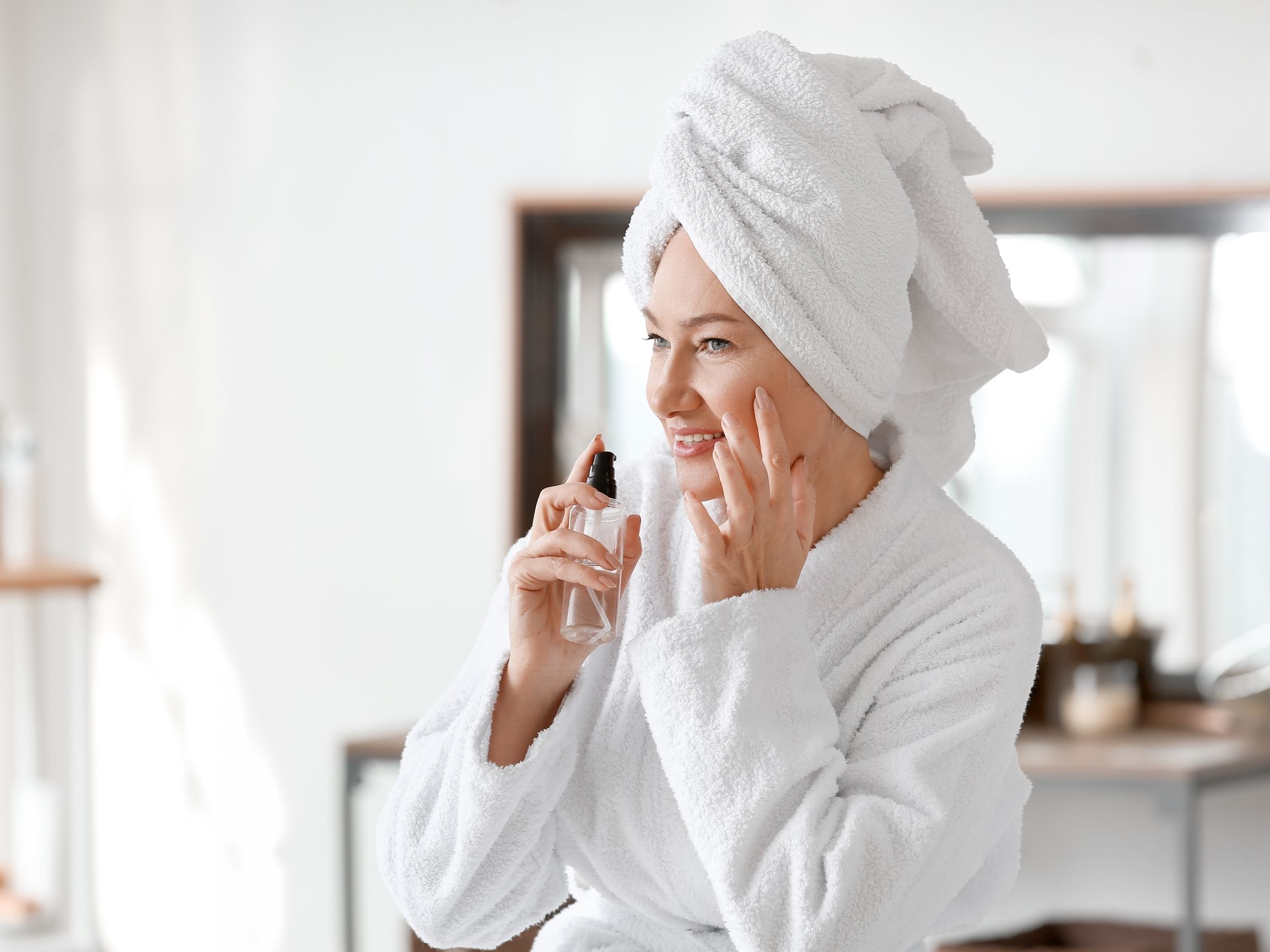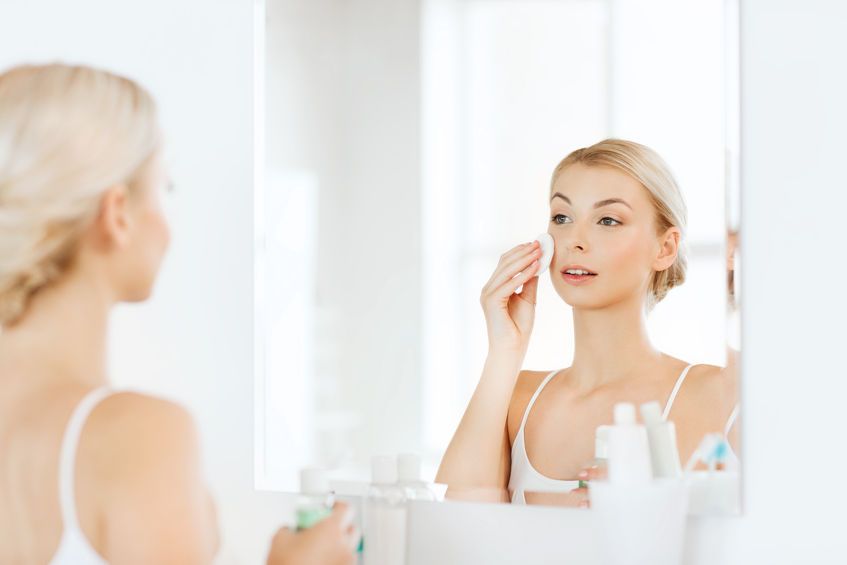
All the Hard to Find Answers to Skin Care Questions
Let’s dive right into all the skin care questions you probably have and the best solutions for your skin woes below!
What Can I Do When My Skin Gets Irritated?
Many times skin irritation, from acne to eczema, can be traced back to overzealous habits. Unfortunately, a lot of what I do is get people back to having healthy skin from overuse of products — stripping cleansers, items that over-exfoliate or contain sensitizing ingredients — which they were using as a foundation for healthy skin but it took them farther away from it. To bring your skin back to its baseline, try the following holistic remedies:
- Run cold water over your pulse points, such as your wrists, to lower your internal body temperature, which calms your skin, too.
- Apply an oatmeal mask to rid yourself of inflammation. Mix dried oats with a few spoonfuls of water. Spread this paste on your skin, and let it sit until it’s semi-dry, then rinse off.
- Use chilled, steeped green tea as a rinse that you splash on your face. EGCG (Epigallocatechin gallate), a polyphenol in green tea, has an immediate soothing effect.
- Try acupuncture to improve circulation, digestion, and immunity internally, all of which support healthy skin externally. Holey recommends weekly treatments initially, then monthly maintenance sessions.
- Live well: you can read stress on your face — literally since high levels of cortisol (a stress hormone) can weaken your skin, bring on acne, and even accelerate wrinkling. Some helpful advice? Exercise regularly, get your rest, meditate, or find ways to feel positive. The results will show.
What Does Non-Comedogenic Mean Exactly?
This term frequently appears on product labels and is used by skin care experts but not always defined in simple, clear language. Here’s a quick explanation: If a product claims to be non-comedogenic it means that it shouldn’t clog pores or trigger acne — either by occluding the skin, blocking glands or irritating the hair follicle. The claim is not regulated by the F.D.A., however, and many companies do their own internal tests to determine whether a product should be considered comedogenic or not. (Some common known comedogenic ingredients are coconut oil and cocoa butter.) Typically, the fewer ingredients a product has, the easier it is to determine if it will cause any reactions.
What is Toner?
Toners should be done after cleansing and before putting on anything else. The traditional application method is to saturate a cotton pad and pass it over your face. But, you end up losing a lot of product.
Tip: Applying toner with clean hands is the most efficient. Just pour a few drops in your palm, then swipe it on. Or if you prefer, you can pull apart a cotton pad so it’s not so thick before putting toner on it. Most formulas can be used morning and night, but you might want to use those with exfoliating acids only at night or every other day.
The Difference Between a Day and Night Cream
Creams you apply in the morning are equipped to protect your skin from the environmental aggressors you’ll face when you leave the house—many contain antioxidants to minimize pollution-based free radicals and sunscreen to shield you from ultraviolet radiation. They typically have a lightweight consistency. Night creams, on the other hand, focus on repairing any damage you might have picked up with ingredients like retinol to speed cellular turnover and counteract dark spots. These creams also replenish moisture levels, which naturally dip in the evening, with emollients that often create a rich, thick texture.
Sunscreen Application 101
Consider this your rule of thumb: Apply sunscreen 30 minutes before sun exposure, and reapply at least every two hours. Chemical sunscreens should be applied directly to clean skin, while physical blockers can be applied last in your skin-care regimen, but before makeup is applied. About two tablespoons of sunscreen are appropriate to cover your face and exposed areas of your body; within that amount, use a nickel-size dollop to cover your face.
It’s unanimously agreed on one thing: that sunscreen is, hands down, the most crucial skin-care product. It’s of utmost importance as part of your year-round regimen. Daily and consistent sunscreen use helps to prevent the development of fine lines and wrinkles, textural imperfections, and changes in the appearance of pores over time. More importantly, daily sunscreen use can help to prevent the formation of certain skin cancers. To make it easy to remember, we recommend using a daily moisturizer with a built-in broad spectrum SPF of at least 30.
If you need help with your skin care questions, call Botanica Day Spa and one of our pro staff will be able to help you out! 727-441-1711.
Love,
Gen



Leave a Reply